TEHRAN(Bazaar) – Professor of Political Science at the University of New Hampshire says “China combines its political and economic interests when formulating its foreign policy, as they realize that a stable international political system will benefit its economic development.”
“I don’t see China turning into a democratic state, but it if wants to break out of the middle-income trap, it will need to allow its people to have more flexible thinking,” Lawrence C. Reardon tells the Bazaar in an exclusive interview.
He adds that “Chinese economy is unable to assume economic hegemony over the global economic system.”
Following is the full text of the interview:
Lawrence C. Reardon received his Ph.D. in political science from Columbia University. He wrote The Reluctant Dragon: The Impact of Crisis Cycles on Chinese Foreign Economic Policy (University of Washington Press, 2001), and has written on China's foreign policy for China Quarterly, The Journal of Contemporary China, China Business Review, and The Journal of Shenzhen University. He translated two volumes of key Chinese policy documents concerning China's coastal development strategy (Chinese Law and Government, 1994). He also publishes on the politics of religion in Asian states (Journal of Current Chinese Affairs, 2011), co-edited the volume, The Catholic Church and the Nation-State (Georgetown University Press, 2006). He is currently completing a follow-up manuscript on Chinese foreign economic policy in the 1980s, and an historical analysis of Chinese government religious policy. He is a research associate at Harvard University's Fairbank Center, was a Luce fellow at the Woodrow Wilson International Center for Scholars, and a special researcher at Jinan University. At the University of New Hampshire, he is an associate professor of political science, and is the coordinator for Asian studies.
Bazaar: In foreign policy, China focuses on economic development. Meanwhile, the United States is trying to involve China in geopolitical conflicts. Do you think America will be able to do that?
Reardon: China combines its political and economic interests when formulating its foreign policy, as they realize that a stable international political system will benefit its economic development. China maintains a robust economic relationship with its East Asian neighbors. However, China states its geopolitical position concerning its borders with India, ASEAN, Japan, and Russia should be recognized by all as part of their historical claims to the region. Not all neighbors agree with the Chinese position.
With the US withdrawal from Afghanistan, the US is continuing its pivot to East Asia to protect its historic allies and friends in case they ask for help. President Biden has reconfirmed close relations with US allies and friends and is less likely to take unilateral action. However, this also means when foreign allies and friends need help, the Biden Administration will seriously investigate the situation to see what the US can do, whether it be Japanese concerns with the Senkaku/Diaoyutai Islands and Taiwan, or the territorial dispute in the South China Sea involving Vietnam, Malaysia, Brunei, and the Philippines.
I think the primary question is whether the Biden Administration will involve the Chinese government in solving geopolitical problems, such as the previous Six-Party Talks dealing with the North Korean nuclear program, reviving the 2015 Iran nuclear deal, WTO dispute settlements, or climate change.
Bazaar: The important argument about China's economic development is that, contrary to the liberal model, it has achieved economic development without following the path of political development. Some believe that China will face serious problems in the future due to the lack of political development, and that the demands of the Chinese people will enter the phase of political development. What is your prediction?
Reardon: I have been fascinated by China’s experimentation with various economic development models over the decades, especially the complex learning process that resulted in China’s promotion of outward oriented development and discarding its inward oriented strategy of self-reliance. While the party over time has also adapted its long-term political and social strategies to reflect the changes in the economic paradigm, they always have strengthened the hegemonic role of the party over politics and society.
The miracle economies of East Asia, including South Korea, Taiwan, and Hong Kong, followed the Japanese pattern of a state-directed economic development. They did not follow the “liberal” market-oriented model, but instead intervened in the economy to encourage, direct, or stop economic initiatives. They also were not traditional democracies, with South Korea and Taiwan led at times by strong autocratic/military leaders, and Hong Kong by a colonial government. Following the June Democracy Movement in 1988, the South Korean people eventually gained the right to elect its president, which ushered in a new era of democratic rule. With the end of martial law in 1987, Taiwan eventually evolved into a vibrant democracy that dismantled one-party rule.
All three economies escaped from the middle-income trap to become high income economies. There are various explanations, including improvements in education, government directed policies, and willingness to pursue comparative advantage in the international market. While the state still plays a major role, these economies also have individual entrepreneurs and bureaucrats that are not always following the party line but are allowed more flexible thinking to change and to adapt to new ways. One of the reasons why the former CCP Party Secretary and Premier Zhao Ziyang promoted a more democratic system was to promote such flexible thinking and force the party to adapt to new ways. I don’t see China turning into a democratic state, but it if wants to break out of the middle-income trap, it will need to allow its people to have more flexible thinking.
Bazaar: At a recent G7 summit, Western leaders approved a budget to encourage developing countries to trade with the West and keep them away from China. Can this solution hinder China's “One Belt-One Road” project?
Reardon: Frankly, I am happy to see any investment being directed to the developing economies. I think it is wrong to think that all BRI projects are designed to transform Africa or Southeast Asia into Chinese agents. In fact, the Chinese are now discovering why the international development regime has not invested in certain areas…bad planning, inability to repay the loan, dangerous environment, etc. Instead, I think the G7 should be joining with China in coordinating such projects, such as one sees with the Asian Infrastructure Investment Bank.
Bazaar: Russia's new security doctrine has an important role to play in relations with China. Given the cooperation between the two countries, it seems that Russia and China, despite some disagreements, are deepening relations with each other, especially regarding the “One Belt-One Road” project. The agreement on the passage of some important corridors of this project through the northern route (Russia) is evaluated in this regard. Will we see the polarization of the world based on trade and economic zones? In the sense that on the one hand Russia and China and their allies and on the other hand the West and its allies?
Reardon: At this point, I don’t see the emergence of a polarized global economy, mirroring the Cold War period of the OECD versus the COMECON economies (which China never joined). General Secretary Xi Jinping has begun to talk about self-reliance and disengaging with the global economies, including stopping the ANT and Didi IPO offerings on Wall Street. But I think the Chinese and western economies are integrated and dependent on one another that would make the cost of such disengagement too high.
Unlike the 1950s when the Soviet Union was the stronger partner in its political and economic relationship, the successor Russian state is a mere shadow of its former self, except for its nuclear weapons. While Russia and China have been cooperating as geopolitical allies and have a share concern about the strategic threat of democratic Europe and North America, their relationship is not necessarily as close as “lips and teeth.” The Russians remain concern about Chinese historic claims to Siberia, parts of which are considered as the results of “unequal treaties” despite various statements and treaties. China’s expansion into Central Asia with the Shanghai Cooperation Organization and BRI is possible seen by Russia as interfering in traditional Russian spheres of influence as they were all part of the USSR. So, for now, the Russians and Chinese will continue to cooperate if it is in each other’s interest. However, the dynamic has changed with the Chinese beginning to treat the Russians as their “little brother.” The question is whether President Putin will want to be a de facto subordinate to General Secretary Xi.
Bazaar: China has trade and economic relations with about 130 countries and the United States with about 80 countries. And China is implementing the “One Belt-One Road” project. Will the dependence of these countries lead to the formation of a kind of Chinese order at the level of international order?
Reardon: China has emerged as a major economic player on the world stage. Its influence in the IMF, World Bank, and among the G7 countries continues to grow. This is especially true with global trade, as its trading relations expand around the world. While China has become the premier global manufacturer for many goods, the question remains whether China will maintain its status as the costs of production increase and foreign investors, especially those who have been denied equal access to the Chinese market, turn to manufacturers in Southeast Asia and elsewhere. While the BRI projects have invested in many parts of the world, Chinese investment projects have recently begun to reduce its investments and loans overseas. There are a few cases of countries using the RMB as an international reserve currency, however currency flows remain restricted. So, at this point, the Chinese economy is unable to assume economic hegemony over the global economic system.





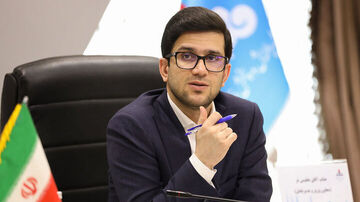


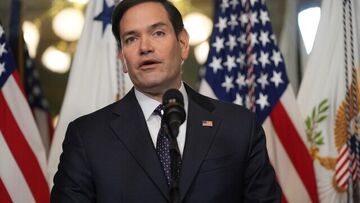



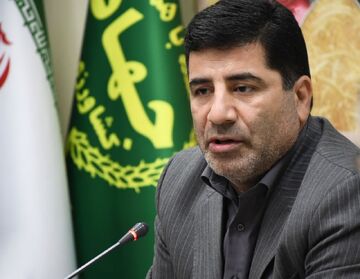
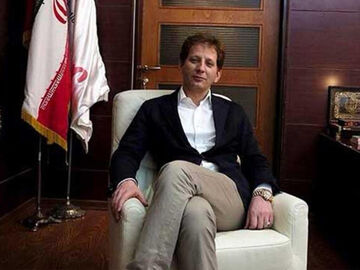
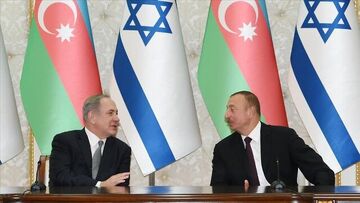
نظر شما